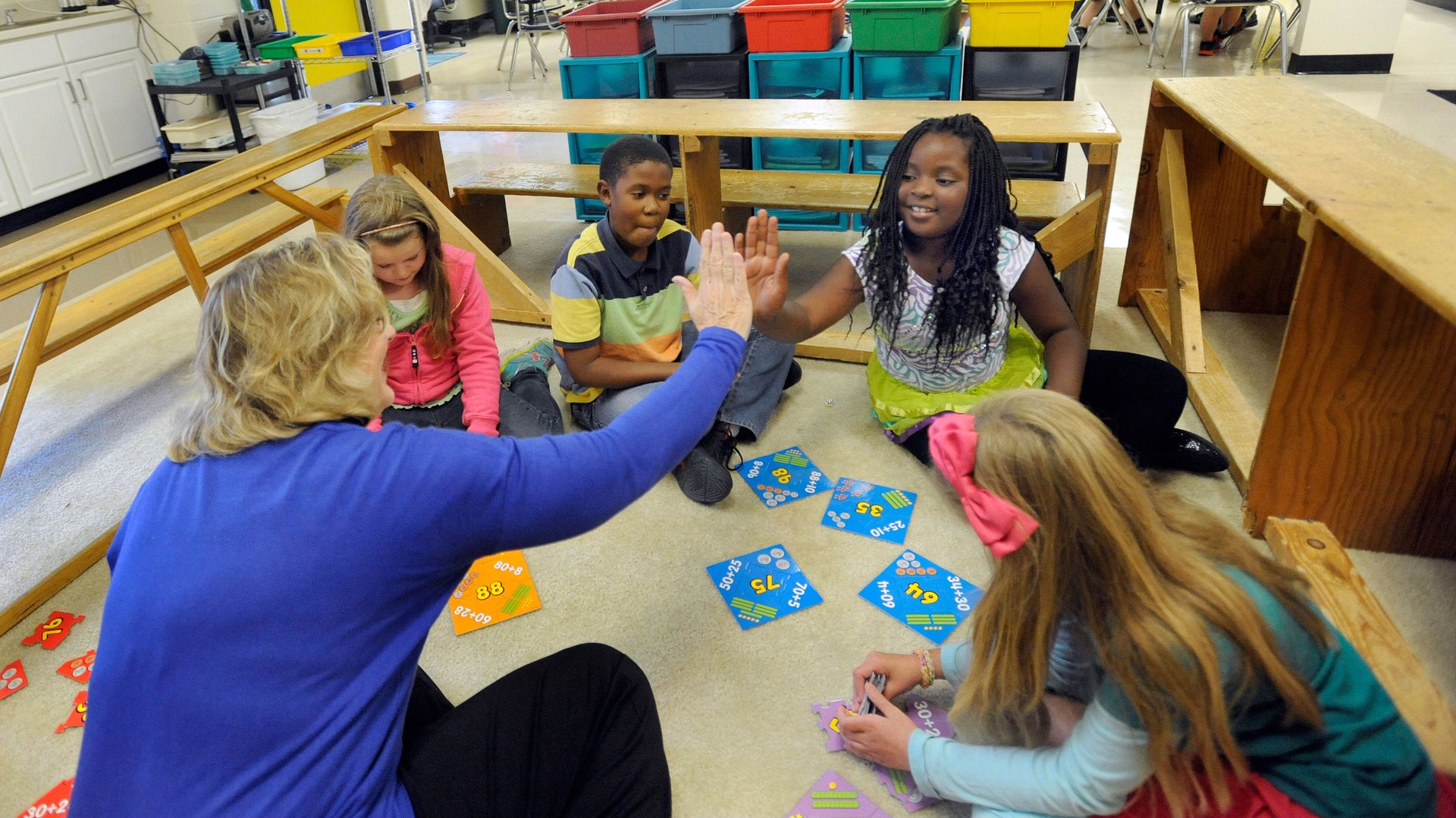Talented and gifted classes don’t provide much extra benefit, say researchers
Myla Goldberg’s novel Bee Season opens with an account of a traumatic moment in Eliza Naumann’s young life: when she doesn’t get picked to be in her elementary school’s Talented and Gifted program. Though only in second grade, she becomes “a student from whom great things should not be expected,” doomed to a classroom full of “C students who never get picked for Student of the Week, sixth-place winners who never get a ribbon, and short, pigeon-toed girls who never get chased by boys at recess.”


Myla Goldberg’s novel Bee Season opens with an account of a traumatic moment in Eliza Naumann’s young life: when she doesn’t get picked to be in her elementary school’s Talented and Gifted program. Though only in second grade, she becomes “a student from whom great things should not be expected,” doomed to a classroom full of “C students who never get picked for Student of the Week, sixth-place winners who never get a ribbon, and short, pigeon-toed girls who never get chased by boys at recess.”
This passage is mostly sly hyperbole, but it highlights an assumption that a lot of students and parents alike make about gifted and talented programs: that they dramatically affect a child’s academic outcomes. If you make the cut, you’re destined for a life of success; if not, you’re cursed.
But the positive effects of talented and gifted programs may be overstated, according to a recent study in American Economic Journal: Economic Policy. Scott Imberman, Sa A. Bui, and Steven G. Craig analyzed the standardized test scores of more than 14,000 fifth-graders in an urban school district in the United States. They focused on students who just barely made the threshold for their schools’ gifted and talented programs—and those who just barely missed it. The goal was to compare how students of roughly the same abilities do when they’re in gifted classes with how they do in regular classes. If the gifted and talented programs are effective, then the marginal students should end up with higher test scores than the marginal students in regular classes. If they’re not effective, then both sets of students would have around the same scores.
The researchers found that, after a year and a half of gifted and talented classes, the scores of the marginal students were about the same as those of the marginal students who’d taken regular classes.
“There is essentially no difference,” said Imberman.
How can this be? How is it possible that gifted and talented classes, which have better teachers and a more rigorous curriculum, don’t improve outcomes for borderline students? The study offers one theory: that the marginal students may have different “self concepts” depending on which type of classes they take. Students at the bottom of the heap in gifted and talented classes may feel discouraged by the fact that they don’t do as well as some of their peers. And this discouragement could cause them to tune out and learn less—which would counteract the higher-quality instruction they receive in the gifted classes. Students at the top of the heap in regular classes, on the other hand, do better than their peers and might get a confidence boost that helps with learning.
The study doesn’t measure one potential benefit of taking gifted and talented classes: impressing colleges and prospective employers. Some colleges give preference to students who’ve taken rigorous courses, even if their grades in those classes are lower than then would be if they’d taken easier ones. Some employers also like to see that prospective hires have pushed themselves in school.
“I don’t think parents should be making decisions based on this paper alone,” said Imberman. “We don’t find much benefit to gifted and talented classes, don’t find much harm either.”
The students Imberman and his colleagues studied are now approaching the end of high school and the beginning of college. He says they plan to do a follow-up study to analyze the longer-term impact of gifted and talented classes. For now, though, the Eliza Naumanns of the world can relax—taking classes with a horde of Student of the Week rejects may not be as bad as it seems.